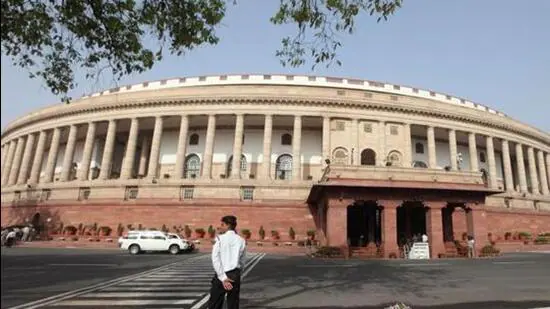Can ‘General Category’ or upper caste boys and girls from poor families who are not listed in Schedule Castes, Tribes or OBCs get a reservation in government jobs or educational institutions?
The Supreme Court ruled, yes. They can avail of savings on financial terms.
The decision of the Modi government
Before the last Lok Sabha elections, the Modi government had decided to reserve 10 percent of seats in government jobs, and education for economically weaker sections (Economically Weaker Sections or EWS) among the upper castes. Parliament also passed the 103rd Constitution Amendment Bill. Yesterday, the Supreme Court sealed the Narendra Modi government’s decision just before the elections in Gujarat and Himachal Pradesh.

In government jobs and educational institutions, 15% of seats are reserved for SCs, 7.5% for SCs, and 27% for OBCs. 49.5% in all. Apart from that, the Modi government reserved 10% of seats for financially weaker sections or the very poor. SC, ST, and OBC extremely poor were excluded from this EWS quota. 40 cases were challenging him in the Supreme Court.
A three-judge bench of the Supreme Court headed by Chief Justice Uday Umesh Lalit yesterday ruled in favor of the ‘EWS quota’. Two justices ruled against the 103rd Amendment to the Constitution to provide for this quota. Chief Justice Lalit himself is among them.
Justice Dinesh Maheshwari, Justice Bela Trivedi, and Justice JB Pardiwala – these three pronounced the verdict separately and said that a 10% EWS quota is not dangerous for the basic structure of the Constitution. Exclusion of SCs, STs, and OBCs from this quota also does not violate the principle of equality of the Constitution. Even in private, non-government-funded educational institutions, the EWS quota is not against the basic structure of the Constitution.
But Justice Ravindra Bhatt and Chief Justice Lalit said in their judgment, reservation can be allowed on financial criteria. But it is unconstitutional to exclude similar poor among SCs, STs, and OBCs who are already lagging behind the EWS quota.
In the majority judgment, Justice Bela Trivedi said, those who are not equal cannot be treated equally. SCs, STs, and OBCs are already getting reservation benefits. But dissenting with them, Justice Bhatt and Justice Lalit said in their judgment that the government erred in thinking that by giving benefits to the poor among SCs, STs, and OBCs in the EWS quota, they would get double benefits.
Patidars, Jats, Gujjars, and Marathas have protested in Gujarat, Maharashtra, Rajasthan, and Haryana demanding reservations for financially backward people among the upper castes. BJP thinks that they will be happy this time. He will benefit from the vote. The Congress reminded that the Sinha Commission was formed during the tenure of Manmohan Singh.
Wrapping up
In the Indra Sahne case, the Supreme Court itself said that the total reserved seats in government jobs and educational institutions cannot in any case exceed 50%. There were allegations that the Modi government had breached the upper limit of 50 percent by reserving 10 percent seats for financially backward people in the upper castes or ‘general category’.
